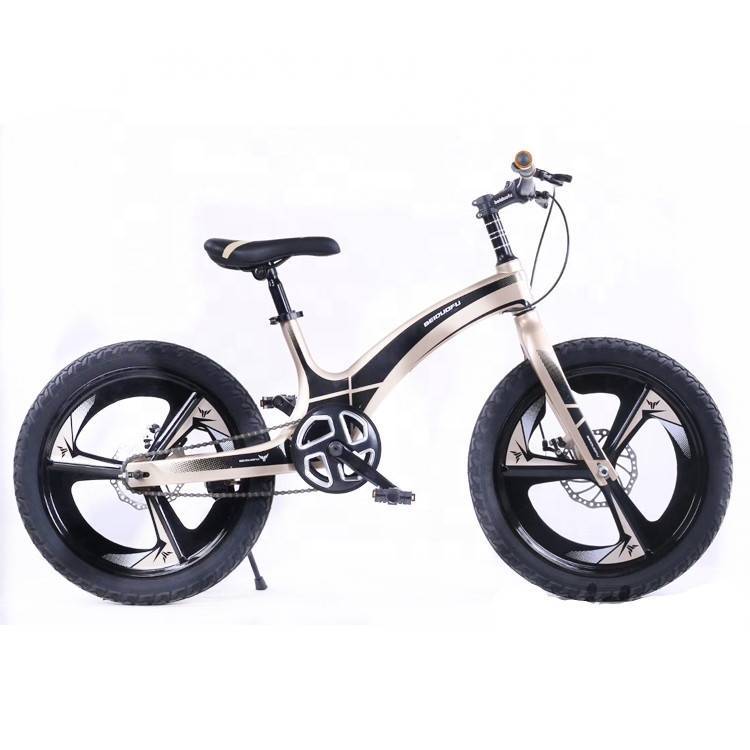9 月 . 30, 2024 10:17 Back to list
2020 Children's Bicycles Manufacturing Industry Trends and Insights
The Rise of Kids' Bikes A 2020 Factory Perspective
In 2020, the world saw a notable surge in outdoor activities, particularly among children, as families sought ways to enjoy nature while adhering to social distancing guidelines. Simultaneously, the focus on health and fitness became a priority, pushing many parents to invest in reliable means for their children to enjoy the outdoors. One of the most popular responses to this trend has been an increased interest in kids’ bikes.
The Kids' Bike Market
The kids' bike market, in particular, has seen exciting developments, with factories racing to meet the rising demand. These bikes are not just toys; they represent an essential step in children's physical development. The right bike encourages balance, coordination, and motor skills, all crucial as kids grow. Therefore, manufacturing these bikes has become a serious business, integrating safety, durability, and style into their designs.
In 2020, factories specializing in kids' bikes embraced innovative designs that catered to various age groups and skill levels. From balance bikes for toddlers to more advanced models for older children, the production line needed to be flexible and responsive. This required a keen understanding of material science to ensure that the bicycles were not only lightweight and easy to maneuver but also robust enough to withstand the rigors of youthful exuberance.
Sustainable Practices
Moreover, as environmental awareness burgeoned among consumers, factories began adopting sustainable practices in their production processes. The demand for eco-friendly bicycles has prompted manufacturers to explore materials that minimize their carbon footprint. Options like bamboo frames or recycled aluminum became more prevalent, reflecting a broader movement toward sustainability within the toy and sports equipment industries.
In 2020, many factories also began implementing sustainable manufacturing processes, reducing waste and energy consumption. This commitment to the environment resonated deeply with parents, who were keen to teach their children about sustainability from an early age. By investing in eco-friendly bikes, families were not only making a purchase; they were advocating for a healthier planet.
Safety First
kids bikes 2020 factory

Safety was another paramount concern for manufacturers in 2020. With various new guidelines and standards emerging, factories had to enhance their quality control measures to ensure that every bike was tested rigorously before reaching the market. Features such as cushioned grips, effective braking systems, and non-toxic paints were not just options; they became essentials in the production chain.
Additionally, many manufacturers began incorporating manuals and educational materials with their bikes, empowering parents to choose the right size and type of bike while educating children about safe riding practices. This comprehensive approach was crucial in building trust with consumers and ensuring that children could enjoy their bikes safely.
The Role of Technology
Technology also played an increasingly integral role in the design and production of kids' bikes. Advances in computer-aided design (CAD) and manufacturing techniques allowed factories to produce bikes that were more customized to fit individual needs. Families could order bikes with personalized colors and designs, enabling children to have their unique styles which fostered a sense of pride and ownership.
Moreover, some factories started integrating technology into the riding experience itself—think smart sensors that monitor riding habits or GPS tracking for safety. Such innovations not only made riding fun but also equipped parents with tools to ensure their children’s safety during their adventures.
Conclusion
The factory landscape for kids' bikes in 2020 was reflective of broader societal shifts in technology, safety, and sustainability. As families continue to prioritize outdoor activities and healthy lifestyles for their children, the demand for high-quality kids' bikes is likely to persist well beyond 2020. The commitment to safety, innovation, and environmental responsibility demonstrates that the kids' bike industry is more than just a passing trend; it is a robust market tailored to nurture the next generation's growth and exploration.
The journey of a child on a bike is more than just learning to ride; it's about creating memories, fostering independence, and embracing adventure. As factories evolve to meet these needs, they are not just crafting bicycles; they are building the foundation for countless childhood adventures yet to come.
-
Children Tricycle Factory Custom Designs & Safety Certified
NewsMay.30,2025
-
Best Scooters for Teens Top-Rated, Safe & Durable Rides for 2023
NewsMay.30,2025
-
Affordable Mini & Baby Bicycle Prices Best Deals & Discounts
NewsMay.29,2025
-
20-Inch Kids Tricycle Adjustable Seat, Safe & Durable Design
NewsMay.29,2025
-
20 Inch Kids Bikes Lightweight, Adjustable & Durable Designs
NewsMay.29,2025
-
Magnesium disc Bicycle wholesale children bicycle wholesale children mountain balance bicycle
NewsMar.07,2025
